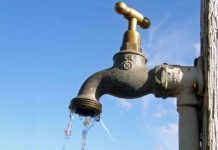
ILOILO City – The Philippine Coast Guard (PCG) is set to file a string of charges against Ayala-owned AC Energy Corp. for an oil spill in the aftermath of the explosion at Power Barge 102 on July 3.
Johonsan Fabilane, deputy commander of PCG Legal Service, said they have wrapped up probing the oil spill yesterday.
PCG’s next move, according Fabilane, would be the filing of charges against the company before the Iloilo City Prosecutors Office.
One possible complaint could be criminal negligence under Section 107 of Republic Act (RA) 8550 as amended by RA 10654 or an Act Providing for the Development, Management And Conservation of the Fisheries and Aquatic Resources.
Commander Joe Luviz Mercurio, PCG-Iloilo chief, will serve as complainant.
A conviction for this offense carries a possible imprisonment of 12 years, administrative fine of 300,000 to 500,000 and additional fine of 15,000 pesos per day from the start of the incident up to the end of the case.
“Clearly, merong na introduce sa dagat na nakapag-cause ng harmful effects and nakapag dulot ng disruption sa mga kabuhayan ng mga mangingisda sa mga coastal areas,” said Fabilane.
There is no need for more evidence to file a case, the PCG official stressed.
He said: “Pictures of the body of waters in Iloilo and Guimaras clearly showed the extent of the oil spill.”
Aside from the PCG, Mayor Jerry Treñas also ordered the City Legal Office to study what possible charges to file against AC Energy.
The mayor said AC Energy may also have civil and administrative liabilities under the Clean Water Act of 2004 (RA 9275).
The Oil Pollution Compensation Law of 2007 (RA 9483) imposes strict liability for oil pollution damage and guarantees adequate reparation for adversely affected populations, especially those that depend on fishing and seashell harvesting.
Under the law, owners of vessels that “cause pollution damage or create a grave and imminent threat of causing such damage,” are liable for:
* expenses incurred in cleanup operations at sea or on shore
* costs incurred for preventive measures and further loss or damage caused by such preventive measures
* consequential loss or loss of earnings suffered by owners or users of property contaminated or damaged as a direct result of the spill
* pure economic loss or loss of earnings sustained by people, even if the property tainted or spoiled by the slick does not belong to them
* damage to human health or loss of life as a direct result of the incident
* environmental damage and other reasonable measures of restoration
In a statement, AC Energy said close to 200 volunteers have signed up to aid in the cleanup operations of the affected coastal areas.
Fishermen were employed to assist in the oil recovery, while community workers continued the cleanup work along the shores./PN



